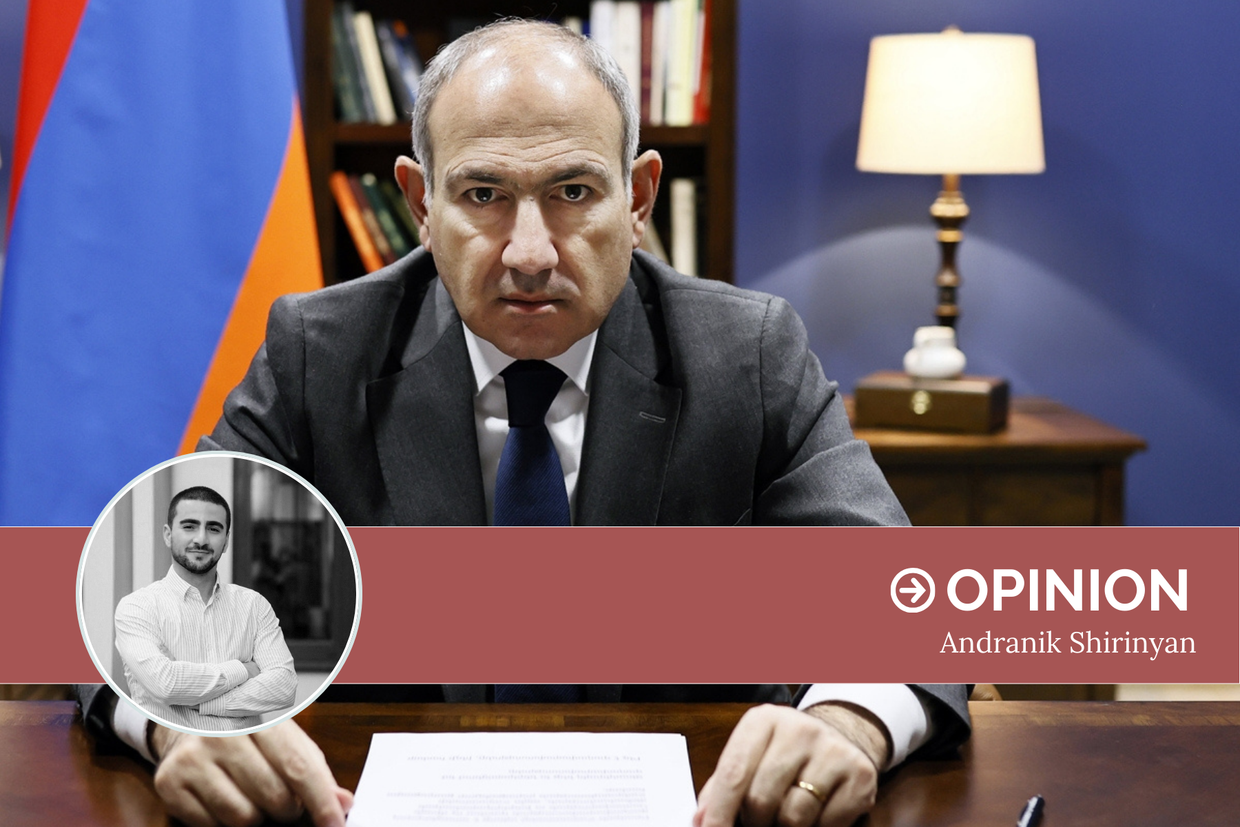
Armenian Archbishop Mikayel Ajapahyan has been found guilty of making public calls to overthrow the government, a conviction that raises the stakes in the ongoing battle between the Armenian Apostolic Church and the administration of Prime Minister Nikol Pashinyan.
The conviction was announced by Judge Armine Meliksetyan, who said that Ajapahyan was guilty of violating part 2 of article 422 of Armenia’s criminal code, which refers to public statements that call for ‘usurping state power, violating territorial integrity, or forcibly overthrowing the constitutional order’.
Ajapahyan’s sentencing is set for 29 September, the court said. Until then, he will remain in pretrial detention.
The criminal case stemmed from two separate interviews Ajapahyan gave in June 2025 and February 2024, the Prosecutor General’s Office said when he was originally arrested in June.
In the first interview, Ajapahyan said, ‘if there were anyone listening to me, the revolution would have happened long ago. I know only three ways to change the authorities. If you know a fourth one, tell me. The first is elections — supposedly, or, so-called elections. The second — a coup. The third — a popular uprising. Is there any other? Is there? No, there isn’t. All three are impossible. Subjectively — impossible. Objectively — maybe possible’.
In the second, he said, ‘I have never called for power seizure, I have called for a coup [...] I have called for a coup, I have told the military forces to save this country, save it from this madman [likely a reference to Pashinyan] [...] I have not called for the seizure of power, I have said that it is necessary to do it. That is not a call, it is necessary to do it. It is necessary now, it is belated, however it is still necessary to do it’.
The Prosecutor General’s Office highlighted the repetition of Ajapahyan’s statements, claiming it indicated that they ‘are not emotional or careless expressions, but a conscious action that took place continuously, consistently, using mass media, information and communication technologies’.
The authorities also noted that Ajapahyan’s statements ‘appear in a new light’ in that context of the arrests of members of the Holy Struggle movement in connection to a coup attempt allegedly organised by the movement.
On 25 June, Armenian authorities raided the homes of dozens of opposition figures, including Archbishop Bagrat Galstanyan, following which he and 14 others were accused of plotting ‘terrorist attacks and a coup d’état’ and remanded to pretrial detention for two months.
Shortly afterwards, the authorities published an alleged coup plan that was dated for execution in 2024. They additionally published audio recordings, which they claimed were of the Holy Struggle movement’s leaders and members discussing the coup. Individuals in the recordings could be heard insulting Armenians and discussing deadly attacks as part of the plot.
The arrests marked a significant escalation in the feud between Pashinyan and the church.
Since late May, Pashinyan, his wife Anna Hakobyan, and other members of his Civil Contract party have regularly attacked the church and the clergy, offering various accusations and using insults.
Tensions between Pashinyan and the church reached an all-time high after Pashinyan claimed in late May that churches had become ‘storerooms’ and that clergymen were breaking their vows of celibacy. Pashinyan additionally accused Karekin II of having a child.











